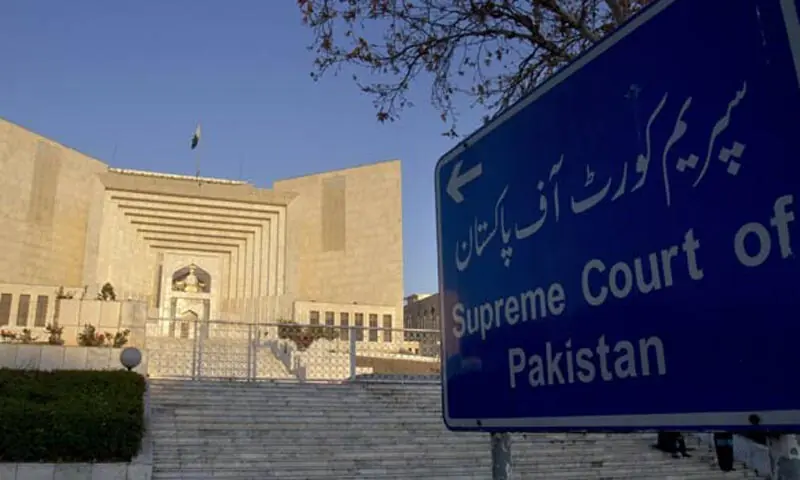

• Justices Mohsin Akhtar Kayani, Babar Sattar, Sardar Ejaz Ishaq Khan and Saman Rifat Imtiaz wanted to file petition under Article 184(3)
• Registry refuses to entertain plea, says SC original jurisdiction doesn’t exist anymore
• Judges asked to approach new Federal Constitutional Court, the very institution assailed in their draft petition
ISLAMABAD: Four judges of the Islamabad High Court (IHC) — who wanted to challenge the recently introduced 27th Amendment — were turned away by the Supreme Court and told to approach the newly-formed Federal Constitutional Court (FCC), it emerged on Thursday.
The four judges — Justices Mohsin Akhtar Kayani, Babar Sattar, Sardar Ejaz Ishaq Khan and Saman Rifat Imtiaz — had drafted a petition invoking the original jurisdiction of the top court under Article 184(3), and sent a representation to the apex court’s registry branch.
However, sources said the petition was not entertained on the grounds that Article 184(3), which used to be an inherent power of the Supreme Court to enforce fundamental rights, has been omitted from the Constitution.
The petitioner judges did not personally visit the Supreme Court to either file the petition or undergo biometric verification, the sources added.
Insiders told Dawn that the four judges had decided to move the Supreme Court after months of raising concerns over what they described as an “incremental but systematic dismantling” of judicial independence, beginning with the 26th Amendment and culminating in the latest constitutional changes.
As they declined to accept the application, court officials reportedly communicated to the petitioners that the petition may not fall within the Supreme Court’s jurisdiction because it relates to a constitutional amendment. The branch advised that the matter might require review under procedures dealing specifically with challenges to constitutional amendments.
However, the petitioners maintained that only the Supreme Court — not the newly-formed FCC — could adjudicate the legality of the amendment because its very existence depends on the amendment being upheld.
As per the draft petition, a forum created by the disputed amendment cannot “judge its own birth”, and the Supreme Court’s inherent power to interpret the Constitution cannot be ousted.
Draft petition
The draft petition, seen by Dawn, argues that the fresh amendment violated articles 9, 10A and 25 of the Constitution, which guarantee the rights to due process, fair trial and equal protection, by subordinating the judiciary to the executive.
It also said the tweaks restructured the constitutional scheme of separation of powers and altered the terms of service of sitting judges in violation of the Constitution.
Ironically, the very forum the judges were advised to approach, i.e. the FCC, which now has exclusive jurisdiction over constitutional matters, is one of the main targets of the petition.
In it, the judges argue that the FCC chief justice was appointed by the president solely on the advice of the prime minister, without any consultation with the judiciary, in violation of established principles reiterated in landmark judgements such as Al-Jehad Trust and Sharaf Faridi.
The draft petition also assails the appointment of the first batch of the FCC judges, asserting that their selection was predetermined and “handpicked” by the executive, even before the amendment was enacted.
According to the draft, the structure and powers of the new court — which binds all other courts but is not bound by precedent itself — create a parallel judicial system unprecedented in common-law jurisdictions. It warned that the FCC’s unlimited discretion to withdraw cases from high courts raised the risk of executive control over constitutional adjudication.
The judges also challenged the amendments to Article 200, which allowed the transfer of high court judges without their consent. The petition further argued that such provisions exposed judges to pressure, fear of retaliation, and manipulation of court composition.
In addition, the petition challenges the altered composition of the Judicial Commission of Pakistan (JCP) and the Supreme Judicial Council (SJC), noting that both bodies now contain a majority of non-judicial members or judges appointed under the contested framework.
The petitioners argued that the appointment mechanism had been reduced to “an election by an executive-dominated electoral college”, replacing merit-based selection with political influence.
Nasir Iqbal also contributed to this report
Published in Dawn, November 21st, 2025










